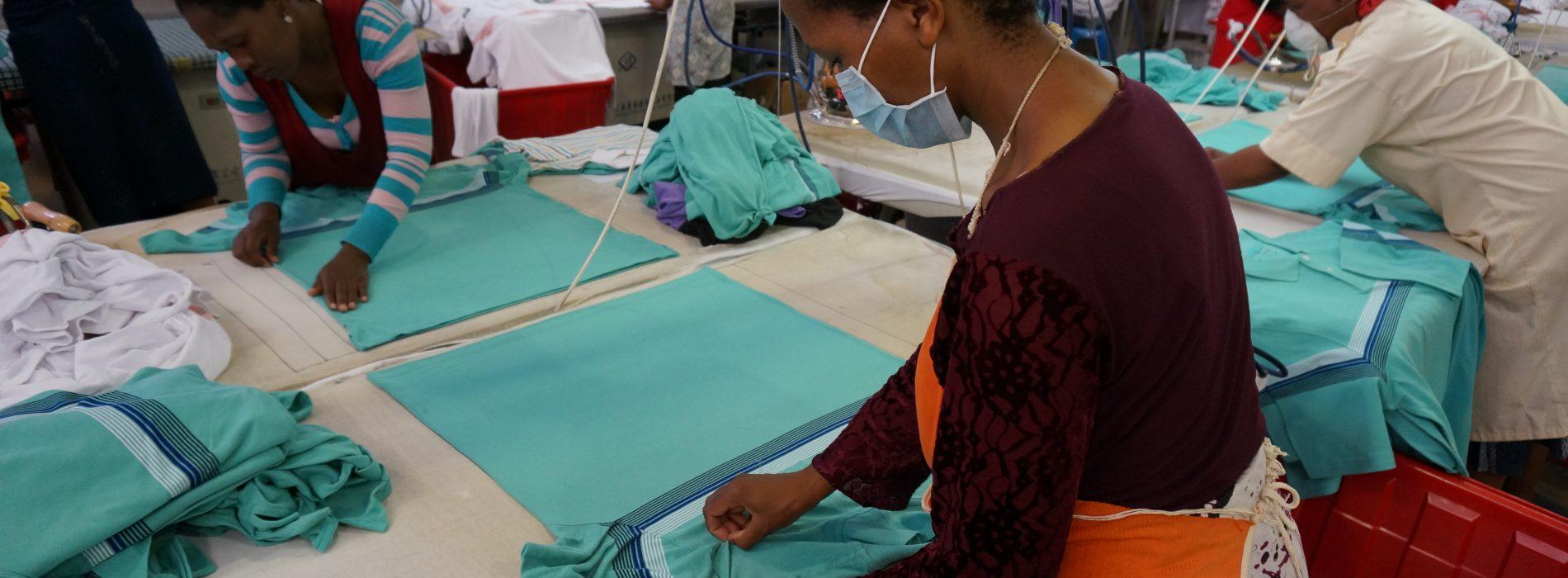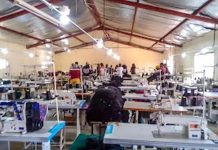Africa-Press – Lesotho. LOCAL textile exporters to the US market have only one month left to know whether they will continue to receive orders or close shop. This is because the United State Congress will sit in November to decide whether Lesotho still qualifies to export its products under the Africa Growth Opportunity Act (AGOA).
A country’s eligibility to export to the US market under AGOA is decided on its adherence to strict conditions. These include conforming to democratic rules, observing rule of law and sticking to internationally acceptable labour standards.
The Lesotho Textile Exporters Association (LTEA) chairman, David Chen, of Shining Century Textile Firm, presented a paper to the US authorities that showed reasons while they should aloow Lesotho to remain under AGOA in 2017. Trade Minister Joshua Setipa and the Lesotho National Development Corporation (LNDC) went to the US to plead Lesotho’s case earlier this month.
In his presentation, Chen said AGOA is important for Lesotho’s growth in light of how apparel exports to the US “more than doubled from USD140 million (just above M2 billion) in 2000 to just under USD 300 million (about M4.2 billion) in 2015”.
“The United States is by far the largest market for apparel produced in Lesotho, accounting for at least 80% of Lesotho’s apparel exports,” Chen said. Chen also told the Americans that because of AGOA, employment more than doubled during the same period.
“Today, the textile and apparel sector in Lesotho employs approximately 50 000 direct workers, most of whom are engaged in producing apparel for export to the US market”.
“The textile and apparel industry in Lesotho, and the closely linked support sectors, are by far the largest private sector employer in the country,” he said.
Chen estimated that each job in the textile and apparel sector provides the main source of livelihood for an average of five people. “In other words, nearly a quarter of Lesotho’s 2.1 million people depend directly or indirectly upon the textile and apparel sector,” he said.
“Remarkable as these successes are, they are completely dependent upon the AGOA duty preference. Without the AGOA duty preference, apparel production in Lesotho would probably shrink to less than the pre-2000 level.
”
Chen estimated that as many as 100 000 jobs, most of which are held by women, would be lost if Lesotho does not qualify for AGOA.
“The impact on the economy of Lesotho would be devastating,” he said.
Lehlohonolo Chefa, a consumer rights activist, said if Lesotho were to lose AGOA market access “women will have to beg men to give them money to buy basic necessities such as sanitary pads, contraception, food, clothes and household priorities will be skewed towards men”.
“Many children will drop out of school as their parents will no longer be able to pay for their uniforms, food, school fees and transport,” Chefa said.
“Women organisations and feminists must demand that the leadership in both Maseru and Washington work together to put the interests of women before making any decision on the future of AGOA,” he said. He also said services associated with AGIOA should be sourced locally and women should be given opportunities to provide them.
Such services include transportation of merchandise to the nearest port, which he said should use at least 30 percent of women owned trucks or women should hold 30 percent stake in companies involved in transportation of goods.
“Women should be assisted to be the biggest beneficiaries of the AGOA Response Strategy.
“Government should invest in the implementation of AGOA Response Strategy,” he said.






